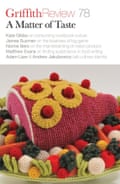‘Dieting was my religion’: the appeal of an insidious culture when everything else seems out of control
Diets, like religion, offer community and control in an uncertain world. We were never going to live forever, but we are still lured by their promise
Eighteen months ago I published a memoir that was, in part, about diet culture: discovering diet culture’s existence, noticing it everywhere and slowly trying to divest myself of its traps. Outside the covers of my book, this process is ongoing – and no matter the effort I put in, I’m also aware that my “choices” create an illusion of control. We’re all simmering in this soup. Some of us can taste it, others not so much – but we’re all being poached.
In the time since I have started writing and speaking publicly on this subject, people seem to have become more attuned to diet culture’s existence. The phrase “diet culture” is often taken as a given because it’s so pervasive. I can’t help but wonder, though – if we’re all so literate in the harmful ways that we’re attacking our own bodies, why can’t I escape the meal-replacement shake ads? Why does Julie Goodwin still make a disparaging remark about her own body when she competes in a MasterChef challenge that involves cooking with the bottom three tiers of the food pyramid? Why is the guy who dominated the non-fiction bestseller list with his extreme fasting program on my screen again selling another program if the first one was so effective?
Diet culture is a system of beliefs that prizes smallness and restriction, bestowing a sense of moral superiority and greater social capital on those who can “achieve” and/or maintain the idealised body: thin, white, young. Such an ideal shifts and has shifted throughout history. Right now it involves being curvy in specific ways – hourglass good, belly bad; rounded butt good, soft arms bad. Diet culture intertwines health and body size, stressing individual responsibility for both rather than recognising the systemic things in all our lives that contribute to our overall health. “Diets” as we think of them now encompass rules, regimens, restrictions and systems. In diet culture, the body is seen as a hackable object if only we could identify, target and obliterate the “problem”.
We hold on tightly to diets and their promises. It can be hard to find community in the world – a damned island, me. Diets offered me a welcoming space and a set of common interests and ideals. They offered a site for a kind of shared trauma. This was my family, my home. Dieting was my religion for the longest time because faith doesn’t need reason (and suffers terribly from confirmation bias anyway). No, faith flourishes with heat and hope and attention.
We were never going to live forever, but our beliefs about what might save us have shifted.
In the past – and for a long time – membership within an actual religious community, the doing of good deeds and the following of religious rules, were the ticket. What we do now might save us later. Religious observers are still given some comfort in the belief that adherence to the rules will make sense of the messy chaos of life: if you are good in the long run, you will be saved. Religious practice provides a buffer against the world’s uncontrollability, and if you do it right, do it hard enough, you get to live forever in your chosen kingdom with other true believers. Get raptured with the best, or live eternally in heaven, or level up to a higher life form. Observers also enjoy a sense of unshakeable community. We’re hardwired to love rules and to love rewards.
In contemporary Australia, we’re continuing to move away from religious adherence – we’re a multicultural and multi-faith society, and the number of those who report “no religion” on the census has grown from less than 1% in 1966 to almost 40% in 2021. I’m in the “no religion” camp, although I still eat fish on Good Friday because I like a sense of occasion and tradition.
But even in a secular society, bits and pieces of traditional value systems remain.

The Protestant work ethic as a mode of body hacking is perhaps the most pervasive religious hangover within a society like ours that has positioned diet culture as one of its dominant thought systems. At first this ethos of hard work and self-denial was about salvation, but now it’s about performative morality and, of course, has become tied to body control. Central to the Protestant work ethic, then and now, is the concept of self-denial – this is the origin of the phrase “no pain, no gain”. For something to be worthwhile, it must hurt. In the case of weight loss, pain is the gateway to all the privileges unlocked by inhabiting the body ideal: sweat is your fat crying, pain is weakness leaving the body, nothing tastes as good as skinny feels.
In the 1830s, American temperance preacher Sylvester Graham became the namesake of an overwhelmingly boring biscuit (the graham cracker, now better known for being jazzed up with chocolate and marshmallows to make s’mores) in answer to the world of “overstimulating” food types and groups. Among the things that Graham deemed simply too exciting for the human spirit were “spices, meat, sugar, caffeine, alcohol and even yeasted bread and condiments”. All those poor, weak spirits bolstered by bland food. All the pious togetherness of craving what is not allowed.
Rules that were once rooted in religion have settled into our insides as secular, self-imposed rules about “good” food and “bad” food and, by extension, “good” bodies and “bad” bodies. Warding against chaos, pointing us to salvation; the whyfors have shifted, but the moral imperative remains.
It feels easy to look at outdated food rules as archaic and arbitrary, but we continue to devise arbitrary rules that come and go.
William the Conqueror was said to have followed a liquid diet to lose weight. He was born in 1028. Lord Byron apparently fuelled his poetry writing with little more than vinegar and water. Liquid diets grew in popularity as a weight-loss tactic over the years, and in 1941 the Master Cleanse arrived to “detox” bodies and minds – first “mobilising” toxins and then stripping them away. The Master Cleanse liquid diet still exists, prescribing a concoction of water, lemon juice, apple-cider vinegar, cayenne pepper and maple syrup to be consumed six times a day. Followers of the diet are promised increased vitality, mental acuity and happiness. They shrink their social sphere to outings in proximity to bathrooms.
More recently, there have been changes in the colour and consistency of the liquids of choice. Back when low-calorie diets were fashionable, meal- replacement shakes sold well. Now “diets” are going out of favour, replaced by an insidious brand of performative healthfulness instead: wellness.
Spot the gurus the same way you always have – count their followers, admire their uniform (for wellness, it’s floaty white and natural fibres), see the perfect control they project over their whole lives. Follow their food rules and think that maybe, maybe, this could be enough to stave off death, if only you pour in enough heat and hope and attention.
For a while, I weighed myself using a Wii Fit balance board, tricking myself into thinking this “game” was entirely different from stepping on the scales in my bathroom. Each day I played started with stepping on the board and watching a cartoon depiction of me on my TV swell or shrink according to the reading. Next, a cheerful proclamation of my “Wii Fit Age”: my cartoon image clapped or slumped in response, depending on whether it gave me a number higher or lower than my actual age. My BMI appeared on the screen, alongside a rating scale of my risk of becoming over (or under) weight. This act was the start of weighing myself daily, and it gave me a glimpse into the immediate effects of this gamification of my body control. If I could make my Wii Fit Age come down, perhaps I could rest easy in the belief that I would live longer.
This daily ritual of stepping onto the balance board was my secular prayer.
Diets and wellness culture both grapple for the sense of control that seems possible in religious fervour: certainty. Safety. Calm.
We seem to live right now in the middle of a storm of things outside of our control – but maybe we always have.

Numerous critics have pinpointed a link between periods of great political and social upheaval and a narrowing of the beauty ideal – and with it, modes of radical restriction and self-denial designed to achieve that ideal.
In the last two years, we wore our masks and bemoaned our Covid kilos and started the diet on Monday, power-walking our 5km radius. We watched as massive ditches took loads of coffins in New York City and we perfected our banana breads. In being robbed of agency by world events, we sought certainty and power by turning towards a system of rules we can perfect, believing the evidence of our mastery to be shown in our long lives. The making of these rules is an essential coping mechanism.
We are picking our way through to the other side, all of us, distracted by our bodies and our uninterrogated biases, hoping that there’s another side to be found. Perhaps pouring our power and faith into trivial body obsessions and the consistent failures of (impossible) diets is the price we pay for a sense of control and community in a world that’s more uncertain than ever.
-
This is an edited extract from an essay, Heat and hope and attention, published in Griffith Review 78: A Matter of Taste
Source: TheGuardian
